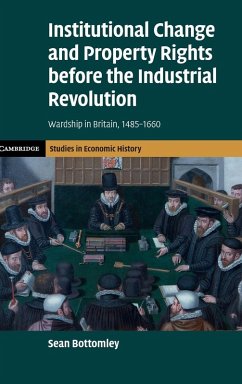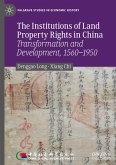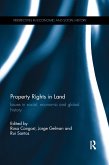Secure property rights are widely considered to be an essential prerequisite for sustained economic development; in Britain it is debated whether they have been secure since the medieval period or only established in the mid-seventeenth century. Within this context, Sean Bottomley examines wardship - the Crown's prerogative right(s) to appropriate landed estates which had descended to a legal minor until they attained their majority, to take custody of the child and, where they were unmarried, to decide their marriage partner. Bottomley demonstrates that this constituted a significant yet grossly inefficient and corrupted source of crown revenue, one that inflicted tangible economic penalties. It was also indicative of the decaying capacity of the early Stuart state and Bottomley concludes that without the constitutional changes of the mid to late seventeenth-century, Britain would not have industrialised in the eighteenth-century.
Bitte wählen Sie Ihr Anliegen aus.
Rechnungen
Retourenschein anfordern
Bestellstatus
Storno








